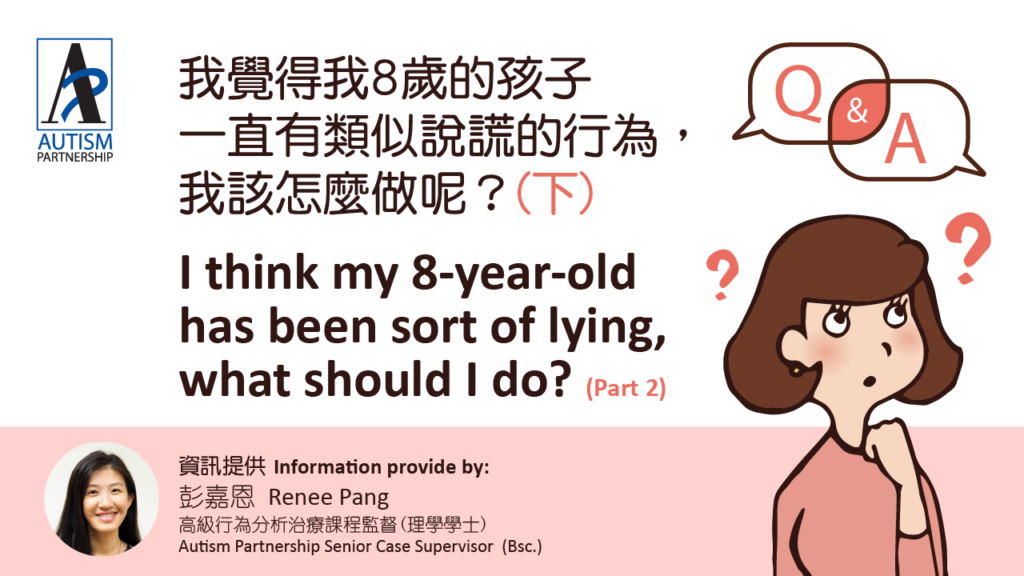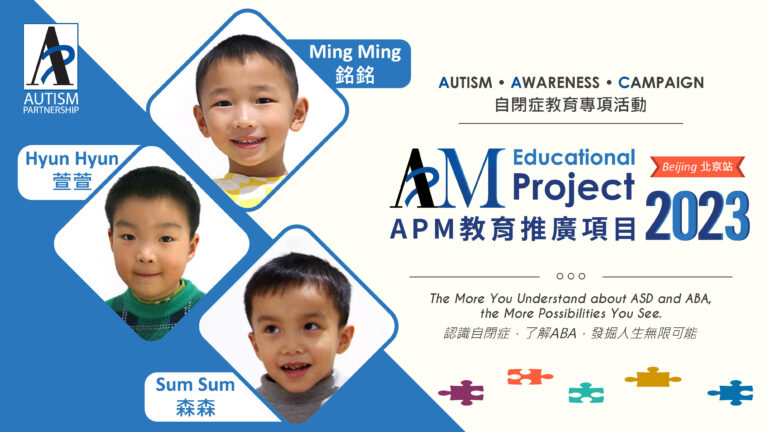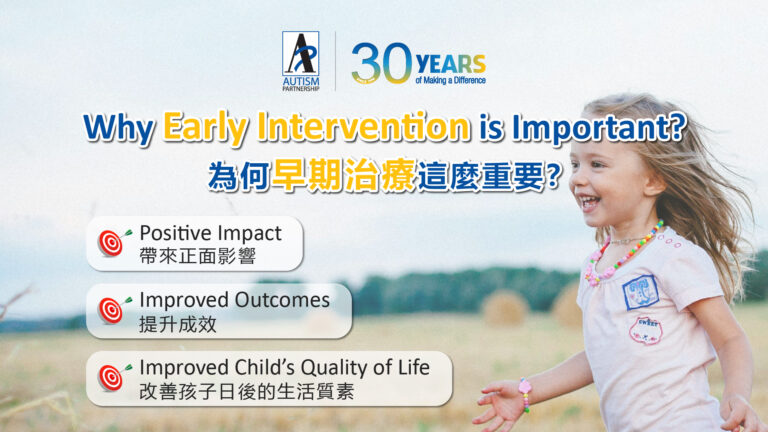
[ Recap Part 1 ]
Children lie to avoid punishment or responsibility, seeking attention from others, or to protect another person. Often, these behaviours happen after children find themselves in a conflicted situation or after they misbehave. While some lies can be simple (such as denials), others can be more complex. Although lying is part of children’s development milestone, this socially undesired behaviour may still be worrying for some parents. I’ve described below some of the ways we can support children to respond truthfully, or accurately, to us.

While lies are intentional, mistakes may not. Asking a child questions related to events that happened earlier would require advance language skills and cognitive abilities. In order to distinguish mistakes from lies, we have to identify the skills and abilities that your child has. This would also help to set your child up for success.

As parents, we are eager to find out what our children did for the day. However, picking a wrong time or setting may affect the child’s response. Ideally, pick a time whereby the child is not distracted from his environment or when the child is not engaged in a preferred activity.

(a) First, help your child to establish or understand the consequences for being truthful.
Let your child participate or witness a clear and simple event and ask him/her a “yes/no” question or giving your child choices to choose from. If your child responds accurately, praise/reward your child.
(b) When your child is increasingly aware of the consequences, you may present the child with complex questions around a clear and simple event. These questions may involve the child to answer WH questions or describing the event he/she experienced in a few steps. It will be best to ask questions that you already know the answer to and providing immediate consequences to your child.
(c) You may increase the complexity of the event once your child is more successful in accurately answering your questions. Again, it is important to deliver immediate consequence to the child. The longer the delay, the less likely your child will learn the appropriate behaviour.

While these procedures may help you to establish more truth-telling behaviours in your child, how parents react when the child gave a wrong answer (or engaging in lying) can also increased or maintained the behaviour.
When your child engages in truth-telling behaviours, praise him/her for doing the “right” thing and provide reinforcement to strengthen the behaviour. When your child responds incorrectly, or lie, let your child know that he/she has given you the wrong answer and provide some choices to help your child answer correctly. One of the reasons that children avoid telling the truth is to avoid being reprimanded or punished after making a mistake. Therefore, how parents react to their child’s wrong-doing or false statements would also increase or decrease the likelihood of lying.
Children can engage in false statements because they do not have the skill to answer correctly or they are trying to deceive the listener to avoid consequence on him/her. Therefore, before concluding that the child is lying, we have to distinguish the child’s language and cognitive skills to implement an effective strategy. Children may engage in a few lies, however, how a parent react to these situations may determine the likelihood of future behaviours. Although lying is part of the developmental process, excessive or persistent lying behaviour would still require the attention of a behaviour consultant.
Renee Pang holds a Master of Education in Applied Behaviour Analysis from Monash University, Australia. She joined Autism Partnership, Singapore, in 2010 and worked with children on both one-on-one and group settings and provided shadow-aide support in mainstream schools. In 2013, Renee became a Program Supervisor where she worked on designing and tailoring curriculum for the child’s needs under the supervision of the consultants. Additionally, she also ran social groups in mainstream schools and collaborated with teachers and principals to devise integration plans. Renee also provides staff and parent training sessions locally and overseas. She is also fluent in English, Mandarin and Cantonese. Since 2019, Renee currently works with Autism Partnership, Hong Kong, to provide consultation, parent training, and staff training for clients in Shanghai.

Every little life is a special present for a family. From the time a baby is born, parents journey through lots of highs and lows, wishing for their child to grow up with a big smile, make great friends, find their own way in a job they love, and create a happy family. However, for […]

Autism Spectrum disorder can be diagnosed as early as 18 months. Research shows strong evidence on how effective Applied Behavior Analysis (ABA) can help children with Autism. It helps to deal with children’s challenging behaviors such as inattention, aggression, self-stimulation, etc. Howard, et al (2005) conducted a study to compare the effectiveness of 3 treatment […]

In today’s society where information flows freely, parents can easily receive different messages. However, these messages are often debatable or even wrong. Believing wrong information can easily lead to misguided choices and delay treatment, the consequences of which may last a lifetime. When conducting one-on-one consultations with parents, I often hear the following misguided views […]
Please share to let more people learn about ASD and ABA therapy:
AP holds the belief that with quality Autism Partnership Method (APM) treatment, individuals with autism should reach their fullest potential and achieve the greatest degree of independence and highest quality of life possible.

Sign up now to get ABA and Autism related news delivered to your inbox. Enter your email to get started
Hong Kong Center
Kowloon Center

All information received will always remain confidential. We will contact you as soon as we review your message. Thanks